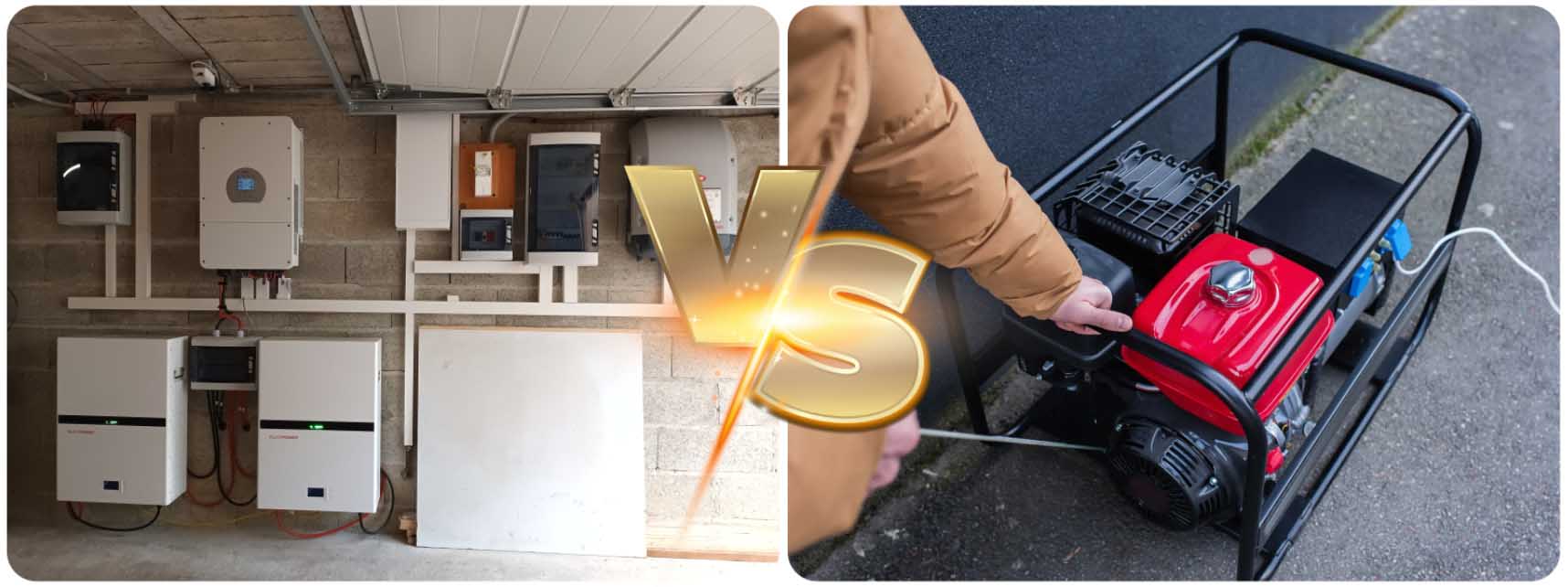
When choosing a reliable backup power supply for your home, solar batteries and generators are two popular options. But which option would be better for your needs? Solar battery storage excels in energy efficiency and environmental sustainability, while backup generators are favored for their instant power supply and high load capacity. This article will provide a comprehensive comparison of both options in terms of reliability, cost-effectiveness, maintenance requirements, and environmental impact, helping you choose the best backup power solution for your home needs.
1. What Are Solar Batteries?
A solar battery for house is a device used to store excess electricity generated by solar battery backup systems. It stores excess electricity generated from solar power during the day, so it can be used during cloudy days or at night.
Solar battery storage usually uses LiFePO4 or lithium battery technology, which has a long lifespan, high efficiency, and safety. They work seamlessly with solar panels and inverters, providing dependable and stable energy storage. As a sustainable and eco-friendly solution, they help reduce electricity bills and carbon emissions.
- ⭐ Applications: Ideal for homes, commercial settings, and off-grid systems, including solar power systems and remote power supplies, ensuring dependable energy use over a long period of time.
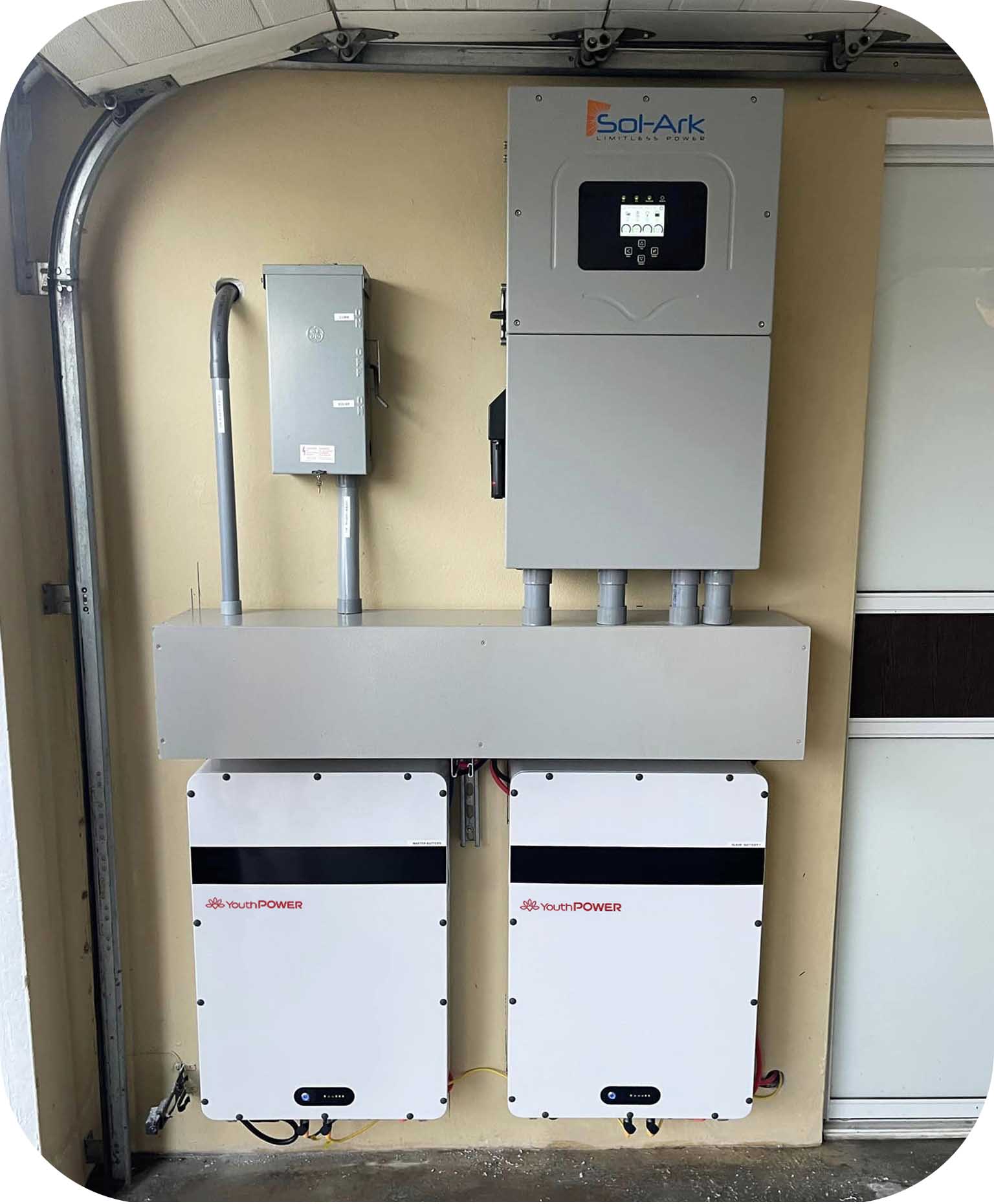
2. What are Generators?
A backup generator for home is a device that converts mechanical energy into electrical energy and is often used to provide reliable backup power in emergencies. They operate by burning fuel such as diesel, gasoline, or natural gas to run an engine. Home standby generators are ideal for short-term power needs and can handle high-load scenarios effectively. While their initial cost is relatively low, they require regular maintenance and produce noise and harmful emissions, making them less environmentally friendly than solar batteries for home.
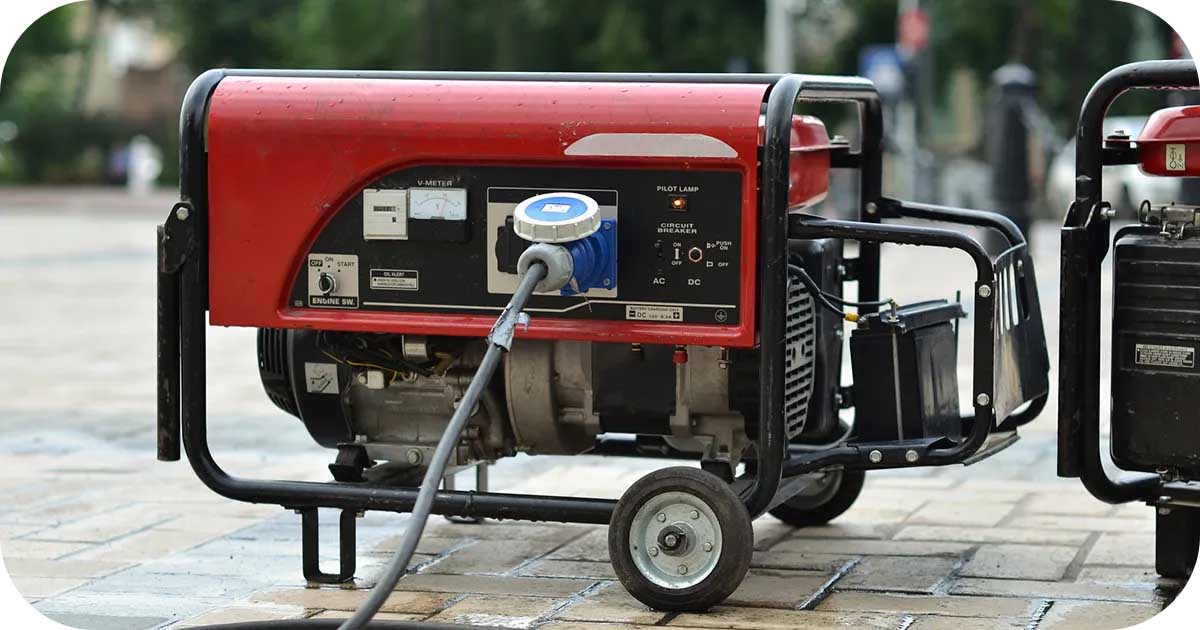
- ⭐ Applications: Commonly used for outdoor activities, remote areas, and during home and commercial power outages. Perfect for emergency power supply, high-load environments, or locations lacking solar energy.
3. Comparing Solar Batteries and Generators
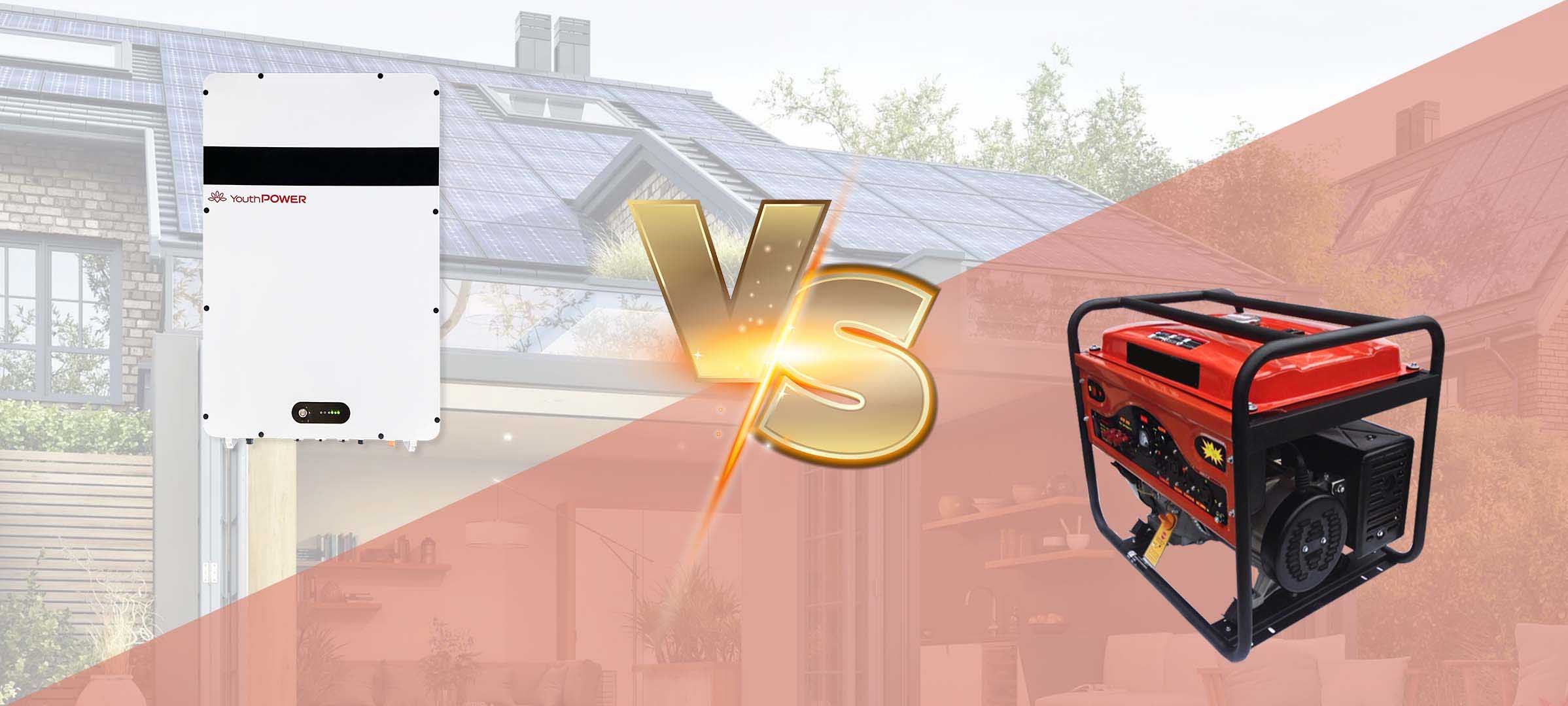
|
Performance Comparison |
Solar Battery |
Generator |
|
Reliability |
▲Stable power, especially suitable for long-term power supply; ▲No fuel required, relying on solar power to charge |
▲Instant power supply, but requires fuel reserves; ▲Cannot operate when fuel runs out or supply is disrupted. |
|
Cost |
▲ Higher initial investment ▲ Low long-term operating costs ▲No fuel cost, which reduces maintenance costs. |
▲ Low initial costs ▲High long-term operating costs (fuel and frequent maintenance) |
|
Maintenance |
▲ Low maintenance ▲ Long life ▲Check the battery status occasionally |
▲ Regular maintenance (changing the oil, inspecting the fuel system, and cleaning parts) |
|
Environmental Implication |
▲ Emission-free ▲ 100% eco-friendly ▲Fully dependent on renewable energy |
▲ Produce carbon dioxide and other pollutants; ▲Negative impact on the environment. |
|
Noise |
▲ Noiseless operation ▲Ideal for home use and quiet environment |
▲Loud noise (especially diesel and fuel generators) ▲May affect the living environment. |
4. Advantages of Home Solar Battery Backup
The advantages of solar battery backup include:
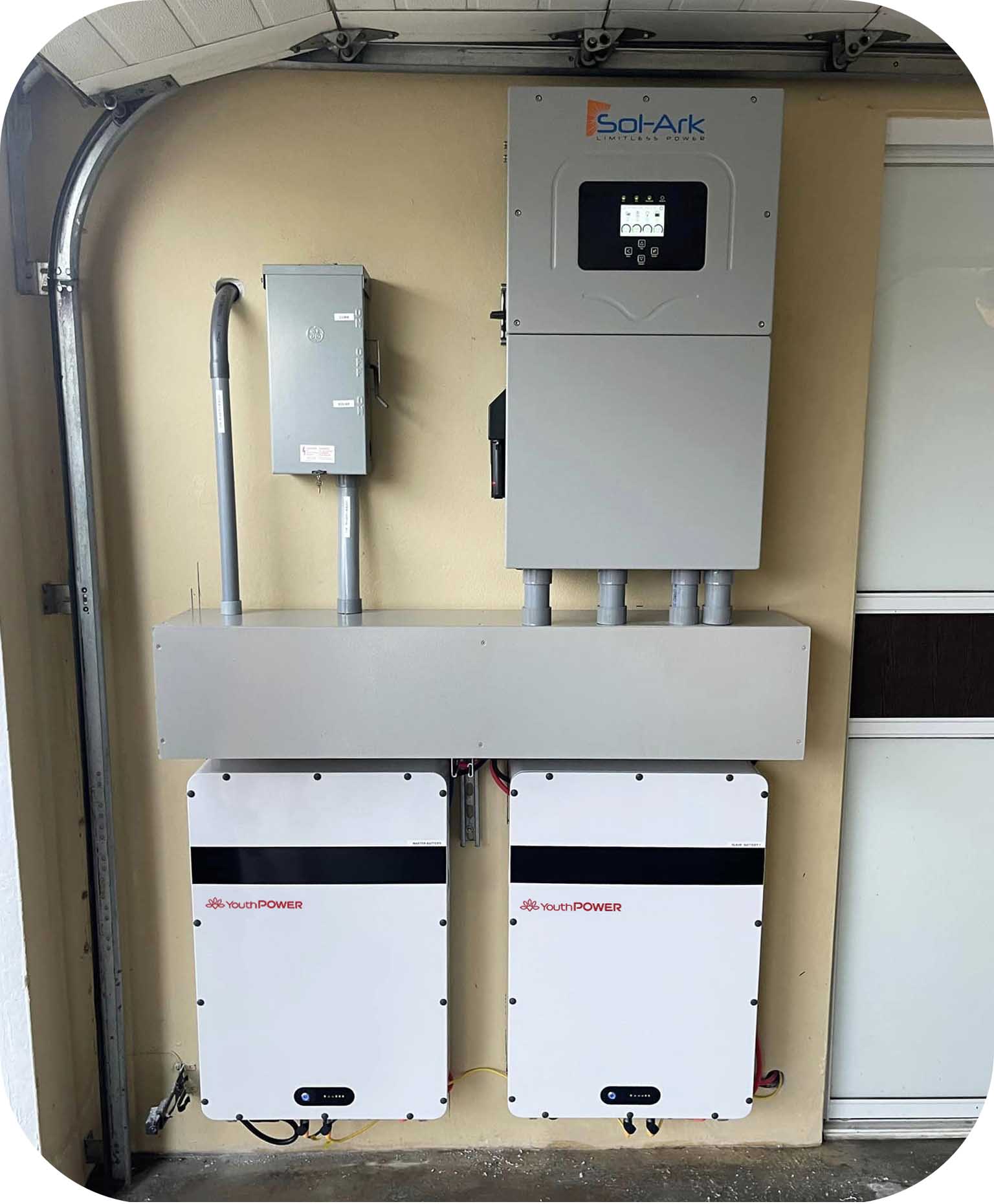
- (1) Renewable Energy Support: generating electricity from solar power, zero emissions and environmentally friendly, supporting sustainable development.
- (2) Long-Term Cost Savings: although the initial investment is higher, the use of deep cycle solar batteries is more economical in the long run by reducing electricity bills and maintenance costs. The later stage is basically free electricity usage.
- (3) Intelligent Monitoring And Seamless Integration: support real-time monitoring of battery status and seamless integration with solar storage battery systems to achieve efficient energy management.
These advantages make rechargeable solar batteries an ideal energy storage choice for both home and commercial users.
5. Advantages of Home Standby Generators
The advantages of a home standby generator mainly include the following:
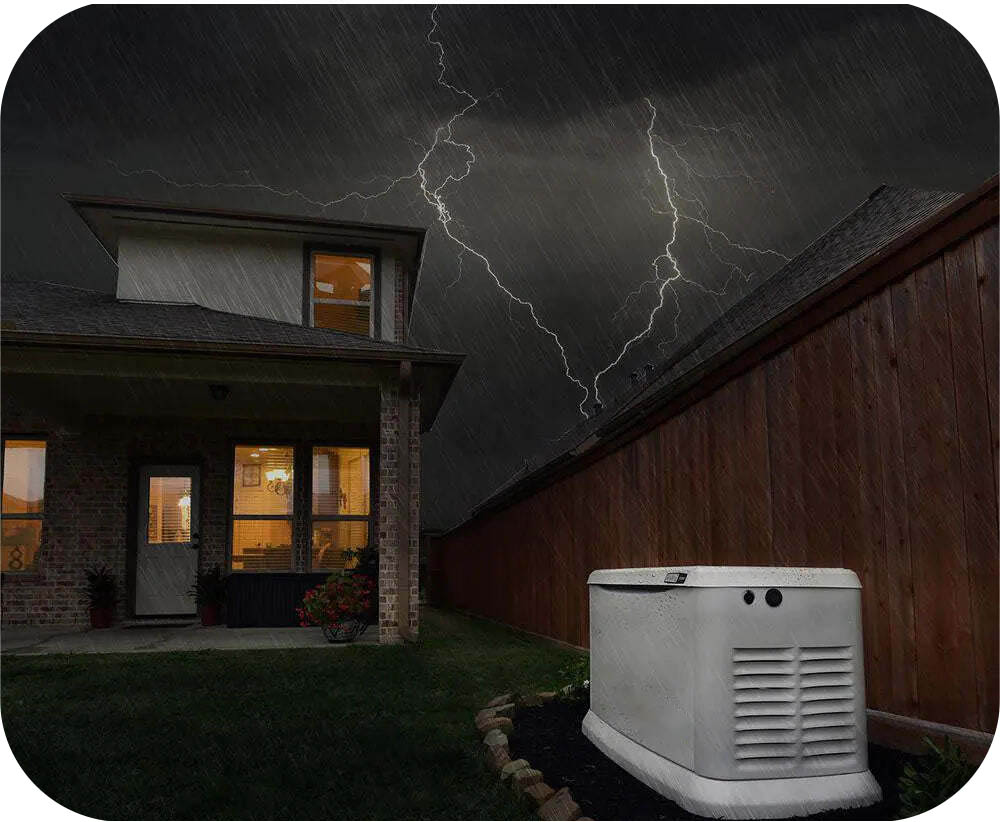
- (1) Instant Power Supply: No matter when there is a power outage or emergency situation during rainy or cloudy days, the generator can quickly start up and provide stable power.
- (2) High Load Capacity: It can meet the needs of large equipment or high power consumption scenarios, suitable for commercial and industrial users.
- (3) Low Initial Cost: Compared to lithium ion solar batteries, the purchase and installation costs of a backup generator are lower, making it suitable for short-term backup power needs.
These features make the home backup generator particularly advantageous in short-term or high-load environments, especially when there is no solar power available.
6. Which Is The Best Backup Power Solution For Your Home?
A backup generator for house only proves its value during power outages, providing no daily benefits. While it's reassuring to have for emergencies, it's a significant expense that remains idle most of the time. Generators serve a single purpose: providing power when the grid fails, without contributing to your energy needs during normal operation.

In contrast, a solar battery storage system provides continuous value. It generates electricity year-round, not just during outages. Excess energy produced during the day charges your LiFePO4 solar batteries, ensuring you have power during night, cloudy days, or during grid failures. This setup maximizes your energy independence and reduces your reliance on traditional power sources.
Furthermore, if your solar batteries are fully charged, surplus energy can be sent back to the grid, reducing your utility bill through net metering. This dual benefit of energy savings and backup power makes solar and storage a more efficient investment than traditional generators.
By transitioning to solar energy storage, you not only protect the planet but also contribute to a greener future for future generations. Make the smart choice today—opt for sustainable energy solutions!
7. Conclusion
solar battery backup for home offer environmental friendliness, long-term cost savings, and low maintenance as advantages, suitable for users who pursue sustainable development and stable power supply. In contrast, home generators for power outages provide instant power supply and high load capacity, suitable for short-term emergency needs, but have higher long-term operating costs and environmental impact. Users should choose the most suitable backup power solution based on their power needs, budget, and environmental considerations to ensure reliable and economical power supply.
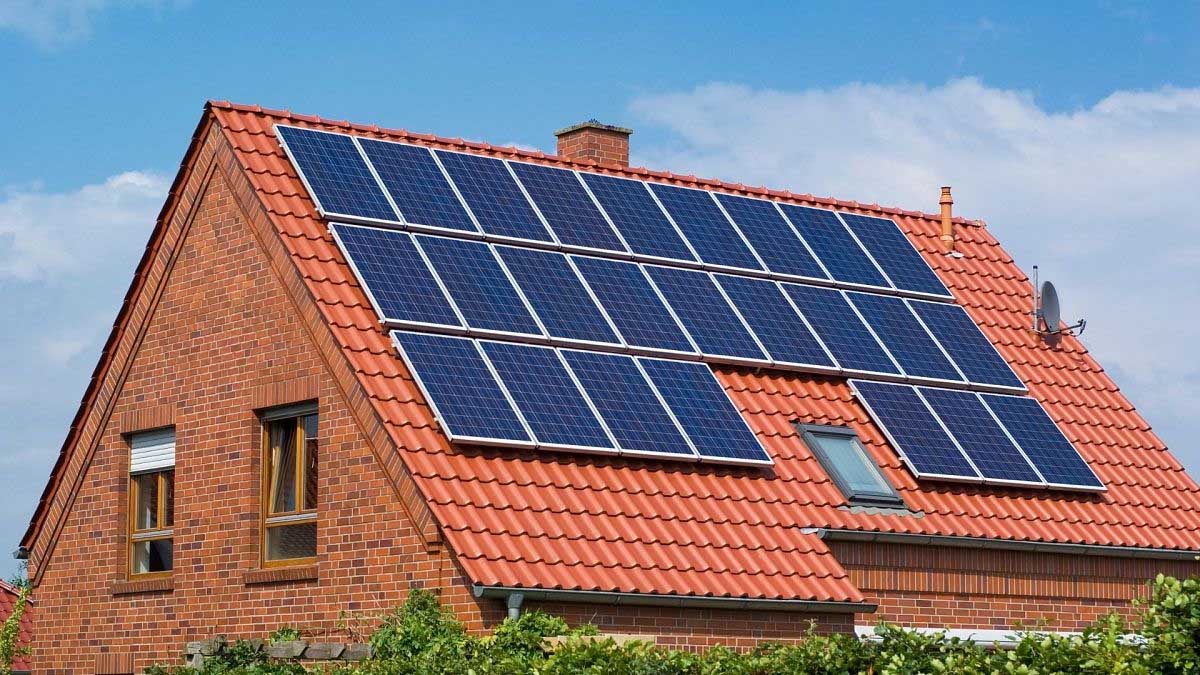
If you are looking for reliable and efficient lithium battery solar solutions, please feel free to contact us. Our professional team will provide customized advice and quotations based on your specific needs. We will assist you in selecting the most suitable backup solution. We can provide comprehensive support for both home and commercial projects. Please contact us via email at sales@youth-power.net or visit our website for more detailed information.
We look forward to providing you with the best solar energy storage solutions and helping you on your green energy journey!
8. Frequently Asked Question (FAQs)
- ① Which one is better between solar and generator?
It still depends on your needs. Solar panel batteries are a long-term, eco-friendly energy storage solution that provides a sustainable and low-maintenance solution for homes and businesses. They are ideal for off-grid systems and help reduce electricity costs. On the other hand, backup generators provide immediate power and are suitable for high-load situations or emergencies. However, they require fuel, maintenance, and are less environmentally friendly. Ultimately, solar power storage batteries are better for long-term use, while generators are better for short-term or emergency power needs.
- ② How long do solar batteries last?
The lifespan of solar power batteries varies based on the type and usage. On average, lithium-ion solar batteries, such as LiFePO4, last up to 10 to 15 years with proper maintenance. These batteries typically come with a 5 to 10-year warranty, ensuring long-term reliability. Factors such as depth of discharge (DoD), charging cycles, and temperature conditions can impact longevity. Regular monitoring and optimal usage can maximize their lifespan, making them a durable and cost-effective choice for energy storage.
More details: https://www.youth-power.net/how-long-do-solar-panel-batteries-last/
- ③ Can backup generators be used with the solar battery system?
Yes. While a home storage battery system can provide a stable supply of electricity on its own, there may be certain situations where it may not be enough, such as during nighttime, overcast weather. In such cases, a generator can charge the solar storage battery system to provide additional power when the solar power system is unable to meet the demand.
Post time: Nov-15-2024

